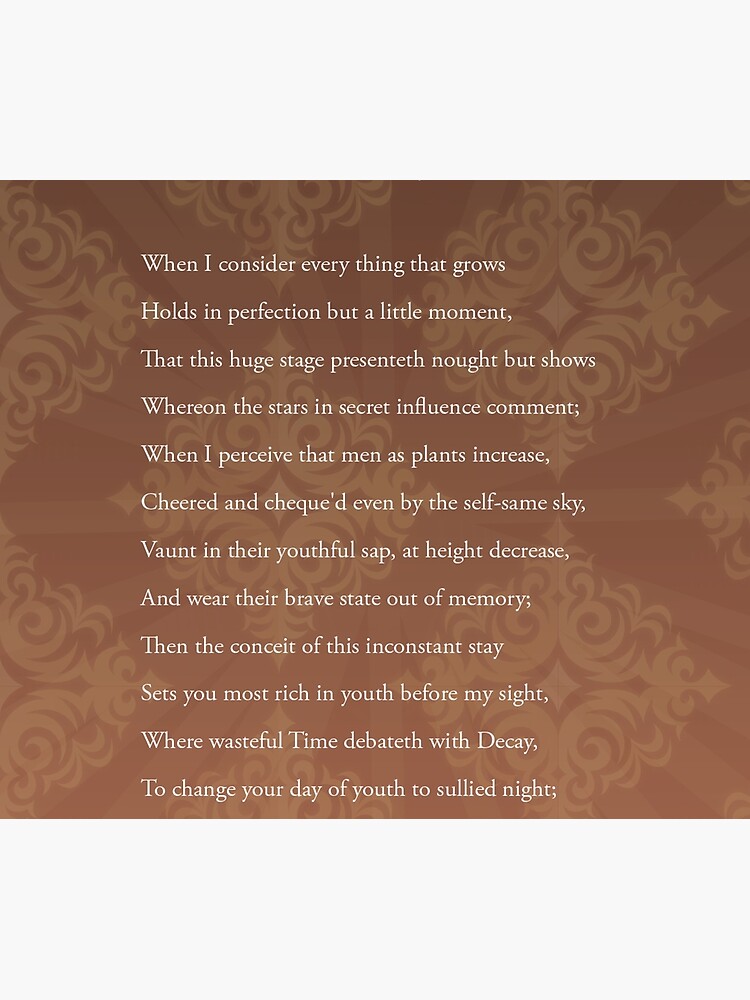

Where I see that time discusses with decay To change your day of youth to sullied night Then the idea of this short stay (on Earth)īrings the thought of your present youth to my mind's eye, Sets you most rich in youth before my sight, Nouns - day, youth, night Then the conceit of this inconstant stay Nouns - time, decay To change your day of youth to sullied night Verbs - change

"Then the idea of the things lusting and decaying at the same times brings the thought of your present youth to my mind's eye" Where wasteful time debateth with decay Verbs - debateth This implies that the plant conceit which has been developed with great care in someway applies to the addressee of the poem. "You" implies that the addressee of the poem is not the reader, but rather there is a proxy addressee. Sets you most rich in youth before my sight Verbs - sets The conceit captures something that is stationary and changing at one and the same time. The two words seem to carry opposite meanings, both frequently changing and act as standstill. "Inconstant" means frequently changing or altering Here, Shakespeare is telling us what he's doing. It's kind of leaning towards a conclusion ("when I consider" "then I conclude").Ī "conceit" is when a metaphor is extended and explored so that it becomes the governing idea of the poem (Ryan Williams). This line seems to push the grammar of the sonnet in a new more summative direction and "then" is an internal rhyme word which recalls the previous two first lines ("when"). Then the conceit of this inconstant stay Verbs - conceit


 0 kommentar(er)
0 kommentar(er)
